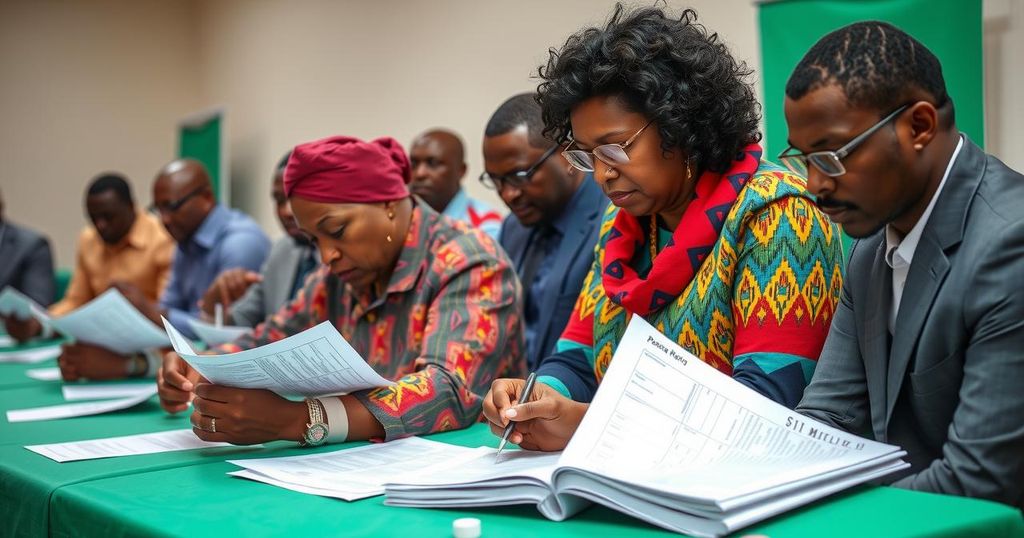Namibian opposition parties IPC and LPM won a court ruling to inspect materials from recent elections. They claim irregularities affected results favoring the SWAPO party. Their legal challenge aims to gather evidence for further action, while the electoral commission disputes these claims, attributing failures to the opposition’s lack of monitoring. The outcome remains uncertain as criticism of electoral processes continues.
On Friday, November 10, 2023, the Electoral Court of Namibia ruled in favor of two opposition parties, enabling them to inspect election materials from the recent presidential and legislative elections. The ruling follows the rejection of election results by the Independent Patriots for Change (IPC) and the Landless People’s Movement (LPM), who claimed irregularities facilitated the SWAPO party’s continued parliamentary control, albeit with a reduced majority. The opposition argues irregularities impacted the elections, particularly citing inadequate ballot papers that allegedly suppressed voter turnout in certain regions.
John Nakuta, a human rights lawyer, commented on the objectives of the IPC and LPM, stating, “So, it is as if they want to inspect whether or not there indeed was irregularities, as they seem to be unofficially saying there were irregularities.” This suggests that the parties aim to gather evidence to substantiate their claims, potentially seeking to have the election results nullified based on their findings. Imms Nashinge, spokesperson for the IPC, indicated that this court ruling is merely the initial step in a broader legal challenge they will present in the coming week.
Elections Commissioner Pius Iikwambi stated that the commission had previously agreed with the aggrieved parties to allow them to inspect election materials, asserting that this court action affirms that agreement. Meanwhile, De Wet Siluka, the electoral commission spokesperson, posited that the opposition parties share some responsibility for the alleged election failures, noting their absence at polling stations where they could have verified the election process.
The recent elections witnessed participation from twenty-two political parties, with SWAPO securing 51 seats in the National Assembly. Critics, however, express skepticism about what substantial proof the opposition parties can generate from inspecting the election materials, highlighting the complexity and challenges involved in adjudicating election irregularities.
The ruling from the Electoral Court thus presents a pivotal moment for Namibia’s opposition parties as they seek to substantiate their claims of electoral misconduct amid ongoing challenges to the integrity of the electoral process.
The recent legal proceedings surrounding Namibia’s presidential and legislative elections highlight significant concerns regarding electoral integrity within the nation. The long-standing SWAPO party, which has ruled since Namibia’s independence in 1990, saw a reduced majority in the wake of its latest electoral success, sparking discontent among opposition groups. The IPC and LPM’s allegations of irregularities, coupled with claims that voter turnout was adversely affected by logistical issues such as a lack of ballot papers, underscore the friction in Namibia’s political landscape.
In conclusion, the Electoral Court’s decision to allow Namibia’s opposition parties to inspect electoral materials marks a crucial step in addressing allegations of irregularities in the recent elections. As the IPC and LPM pursue their legal challenge, the outcome remains uncertain, with both parties aiming to present compelling evidence to support their claims. This case encapsulates the broader debates surrounding electoral integrity and democratic principles in Namibia, reflecting ongoing tensions within the political framework.
Original Source: www.voanews.com






